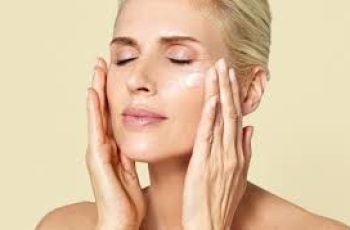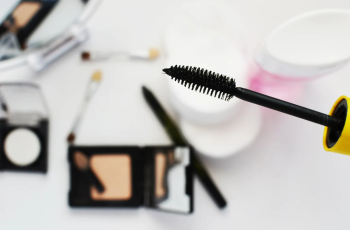
Argan Oil in Skincare: The Golden Elixir for Sensitive Skin
If you’re looking for a powerful, natural ingredient that soothes, hydrates, and heals, argan oil may be the answer. Often called “liquid gold,” it’s become a must-have in skincare.
In this post, we’ll explore why argan oil is ideal for sensitive, dry, and aging skin—and how to use it correctly.
We’ll also cover science-backed benefits, risks, and tips to help you make the most of this Moroccan marvel.
What Is Argan Oil?
Argan oil is a natural plant oil extracted from the kernels of the argan tree, which is native to Morocco. It’s been used for centuries for both culinary and cosmetic purposes.
There are two main types of argan oil: edible (roasted) and cosmetic (unroasted). Only the unroasted version should be applied to the skin. The roasted oil is for cooking.
The best type for skincare is “first press” unroasted argan oil, which contains the highest amount of antioxidants and nutrients.
Why I Use Argan Oil for My Rosacea-Prone Skin
I have Baumann Skin Type 4, meaning my skin is sensitive, dry, and prone to redness. Argan oil has become a go-to for me, especially during flare-ups.
Its soothing, anti-inflammatory properties help calm rosacea symptoms, reduce stinging, and hydrate my dry skin without irritating it further.
It’s one of the few oils that my skin can tolerate well, especially in harsh weather or when my barrier feels compromised.
What Makes Argan Oil So Special?
Argan oil is rich in fatty acids, antioxidants, polyphenols, and skin-repairing nutrients. This combination makes it effective for multiple skin concerns.
Let’s look at the key components that make it a skincare superhero:
Linoleic Acid: A powerful anti-inflammatory fatty acid that soothes skin and reduces redness.
Oleic Acid: Softens and smooths the skin, increasing penetration of other ingredients.
Stearic Acid: Supports the skin barrier and prevents moisture loss.
Squalene: Naturally found in the skin; hydrates and protects.
Tocopherols (Vitamin E): Strong antioxidants that fight free radicals and aging.
It also contains rare plant sterols and polyphenols that offer additional antioxidant benefits.
Argan Oil’s Top Skin Benefits
Here’s what argan oil can do for your skin, backed by its nutrient profile:
1. Moisturizes Dry Skin
It’s packed with hydrating fatty acids that help lock in moisture and prevent water loss from the skin.
2. Soothes Sensitive Skin
Its anti-inflammatory compounds calm redness, irritation, and inflammation, making it ideal for sensitive or reactive skin.
3. Reduces Rosacea Symptoms
Argan oil’s soothing nature can help reduce facial flushing, stinging, and dryness in people with rosacea.
4. Improves Eczema and Psoriasis
By repairing the skin barrier, it can relieve itching and dryness associated with eczema and psoriasis.
5. Treats Razor Burn
After shaving, it soothes and reduces redness caused by razor rash.
6. Helps Heal Acne Scars
Though it’s an oil, it’s non-comedogenic and may help fade post-acne marks thanks to its healing and anti-inflammatory properties.
7. Offers Anti-Aging Protection
Antioxidants like Vitamin E and polyphenols help reduce the appearance of fine lines and protect skin from environmental damage.
What Skin Types Benefit Most?
Argan oil is best for people with:
Dry skin, Sensitive skin, Mature or aging skin, Rosacea-prone skin, Eczema or psoriasis
Those with oily skin can still use argan oil, but may prefer to spot-treat or use it at night. It’s lightweight, but some may find it too rich for daytime use.
What About Oily or Acne-Prone Skin?
Argan oil won’t clog pores. It’s rated non-comedogenic, which means it’s unlikely to cause blackheads or pimples.
In fact, one study showed that a cream containing argan oil helped reduce oiliness and sebum production in people with oily skin.
Still, results can vary. If you have acne-prone skin, patch test first or look for products with argan oil combined with lighter ingredients.
Argan Oil Side Effects
Although generally safe, a few people may experience side effects. Here’s what to watch for:
Shininess: If you use too much, it may leave a greasy finish, especially on oily skin.
Allergic Reaction: Rare but possible, especially if you have a tree nut allergy.
Anaphylaxis: One reported case in a tree nut allergic individual. Always patch test first.
In general, argan oil is very safe and well-tolerated by most skin types.
Is It Safe for Pregnant or Breastfeeding Women?
Yes! Argan oil is considered safe during pregnancy and while breastfeeding. It’s also not linked to hormone disruption or fertility issues.
It’s free from endocrine-disrupting chemicals, making it a clean, non-toxic ingredient for all life stages.
Shelf Life and Storage Tips
Topical argan oil has a shorter shelf life than the edible version. Here’s what you need to know:
Topical argan oil lasts about 3–4 months at room temperature.
Edible argan oil can last up to 2 years if stored properly.
Keep argan oil in a cool, dark place, away from heat and light.
Refrigeration helps extend its shelf life significantly.
Check the label for expiry dates and look for dark glass bottles to protect the oil from oxidation.
Environmental Impact of Argan Oil
Argan trees grow only in specific regions of southern Morocco and are now considered endangered due to overharvesting and climate stress.
To combat this, Morocco and UNESCO have implemented protections and sustainable harvesting practices.
Efforts have been made to preserve forests, provide local jobs, and support Berber women’s cooperatives. Argan oil now supports entire communities.
When buying argan oil, look for ethically sourced or certified fair trade products to ensure sustainable practices are being followed.
What Does the Science Say?
In a study by Dobrev, 20 volunteers used a cream containing argan oil, saw palmetto, and sesame seed extract.
After four weeks, 95% of participants saw a visible reduction in oiliness. Sebum levels dropped, and participants rated the product highly.
However, this was a small, open-label study—and more research is needed to isolate argan oil’s specific effects.
Currently, few clinical studies exist, but anecdotal and traditional use support its effectiveness for hydration and soothing.
Argan Oil’s Key Chemical Components
Argan oil is packed with beneficial compounds, including:
Fatty Acids:
Linoleic acid, Oleic acid,Palmitic acid, Stearic acid
Polyphenols:
Caffeic acid, Vanillic acid, Ferulic acid, Epicatechin, Catechin
Sterols:
Spinasterol, Schottenol
Other Nutrients:
Tocopherols (Vitamin E variants), Carotenes, Squalene, Triterpene alcohols
Each component works together to strengthen the skin barrier, reduce inflammation, and add glow.
How to Find the Right Argan Oil Product
With so many products on the market, it can be hard to know which one suits your skin. Here’s how to choose wisely:
Know your skin type (take a skin type quiz for help).
Look for unroasted, cold-pressed argan oil in the ingredients list.
Choose dark glass bottles for purity and protection.
Look for formulas without added fragrance or harsh preservatives, especially if you have sensitive skin.
Use trusted platforms like Skin Type Solutions, which recommend products based on your personalized skin profile.
Final Thoughts: Is Argan Oil Worth It?
Absolutely. Argan oil is one of nature’s most versatile and effective skincare ingredients. From hydration to anti-aging and soothing sensitive skin, it delivers results.
It’s especially useful for people with dry, sensitive, or mature skin, and even holds promise for some oily skin types when used correctly.
With proper storage and ethical sourcing, it’s both a safe and sustainable beauty choice. Just make sure to use high-quality, unroasted versions and monitor for any reactions.
If you’ve never tried argan oil, this golden elixir might be the natural skincare upgrade your routine needs.


